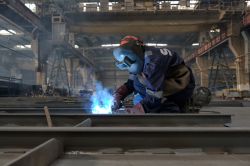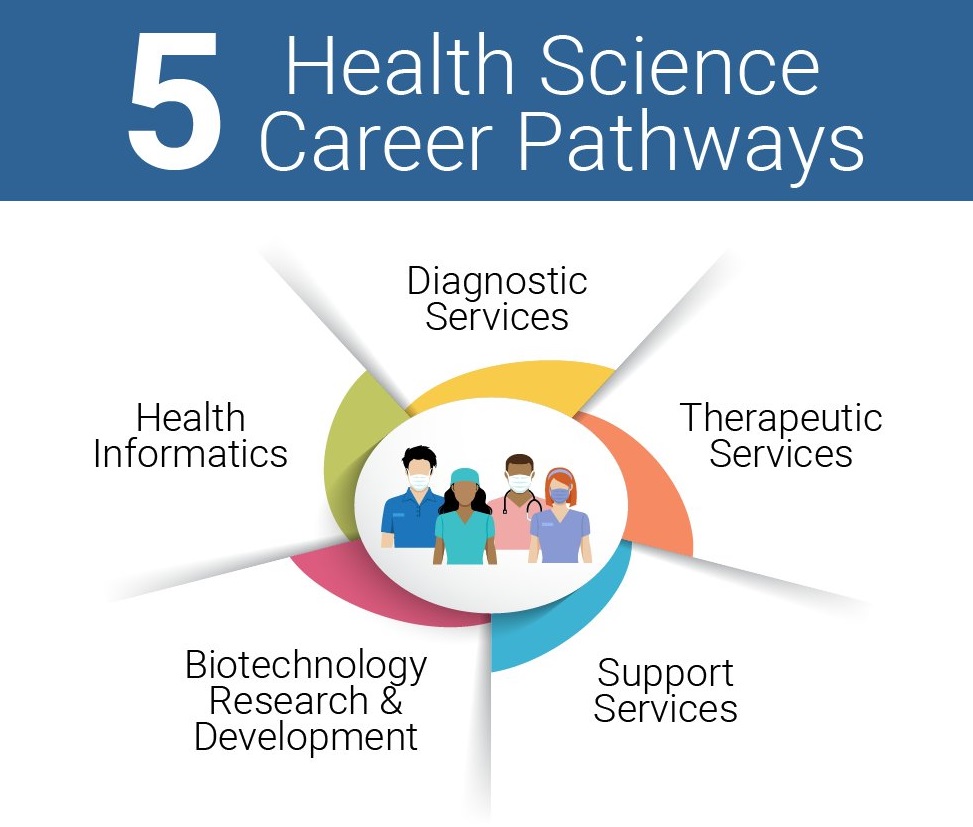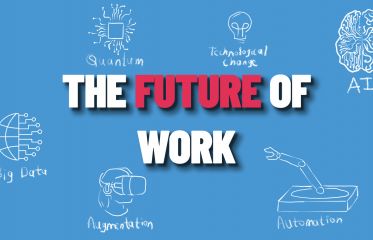Each of these pathways has careers in the same field of work that require varied skills. As you are thinking about your future career, you should look for a career that matches your skills as well as your interests and personality type. You should look for a career that you can see yourself performing day in and day out for many years. The Health Science Career Cluster has five Health Science pathways:
- Support Services
- Therapeutic Services
- Biotechnology Research and Development
- Diagnostic Services
- Health Informatics
1. Support Services
Support Services is a vital field in health care, and careers in this area help provide a welcoming and safe environment for patients and the public. The Support Services pathway encompasses both technical and professional careers. Examples of Support Services careers include:
- Pharmacy aides
- Health educators
- Dietetic technicians
- Maintenance or electrical engineers
- Cooks and servers
- Patient representatives
- And more.
Choosing support services
Consider careers in the Support Services pathway if you would like to:
- Help guide patients and their families through their health care journey
- Prepare food for patients and families or monitor patient food intake
- Make sure microscopes and other testing instruments are properly calibrated
- Perform preventive maintenance on medical building systems
- Educate the community on important health topics
2. Therapeutic Services
Careers in Therapeutic Services are focused on improving the health of patients over time through direct care, treatment, counselling or health education. Many of these careers require certification or additional education. Careers in Therapeutic Services include:
- Nurses
- Physical therapists
- Speech-language pathologists
- Surgical technicians
- Athletic trainers
- Home health aides
- Audiologists
- Anesthesiologists.
Choosing therapeutic services
Consider careers in the Therapeutic Services pathway if you would like to:
- Focus on preventing illness, disease or injuries
- Work with people of all ages
- Help patients hear, see or speak better
- Assist with surgeries and maintain sterile environments
- Help patients regain their mobility and independence.
3. Biotechnology Research and Development
Careers in Biotechnology Research and Development may be right for you. Using science and engineering, these careers focus on discovering new treatments or inventions to directly help patients or health care professionals. From improving the accuracy of diagnostic tests, to investigating contagious diseases, this field is continually evolving. These careers include:
- Biologists and biostatisticians
- Epidemiologists
- Pharmacologists
- Research assistants
- Nuclear medicine providers
- Technical writers for health journals or magazines.
Choosing Biotechnology Research and Development
Consider careers in the Biotechnology Research and Development pathway if you would like to:
- Investigate relationships between humans and disease
- Work to improve the testing of disease, including genetic testing
- Evaluate medication strength and purity
- Build and maintain databases of clinical results
- Analyze and report on health data
- Invent medical devices that help patients live longer, safer and higher-quality lives.
4. Diagnostic Services
Careers in the Diagnostic Services pathway focus on testing and examining patients to help diagnose their illness or injury. These careers work closely with other medical professionals to help guide the plan of care for each patient. From blood samples to x-rays, these diagnostic tools help patients in hospitals and outpatient facilities. Careers include:
- Phlebotomists
- Radiologists and radiology technicians
- Histology technicians
- Physician assistants
- Diagnostic medical sonographers
- And more.
Choosing Diagnostic Services
Consider a career in the Diagnostic Services pathway if you would like to:
- Perform MRI, x-ray or ultrasound procedures
- Analyze laboratory results
- Draw blood
- Explain diagnostic procedures to patients.
5. Health Informatics
Careers in the Health Informatics, also known as Medical Records, pathway are diverse and encompass patient data and health information, financial records, the management of health care agencies, and working with computer systems that help schedule procedures and track patients. Employees in this field usually have limited in-person interaction with patients but are very important to the patient experience. Careers in the Health Informatics field include:
- Medical record technicians
- Medical assistants
- Software system developers
- Schedulers
- Coders
- Transcribers.
Choosing Health Informatics
Consider careers in the Health Informatics pathway if you would like to:
- Maintain accurate medical records
- Be responsible for admission and discharge papers
- Help patients access their medical records
- Schedule patient appointments
- Work with or create software that tracks patients.































